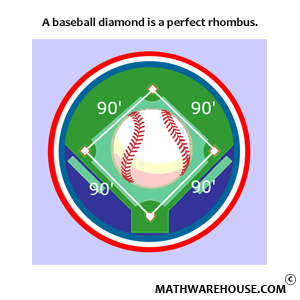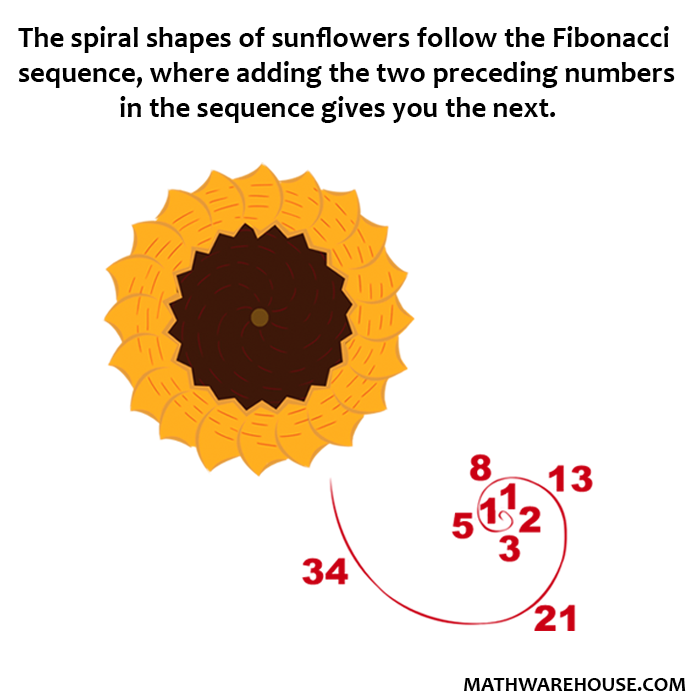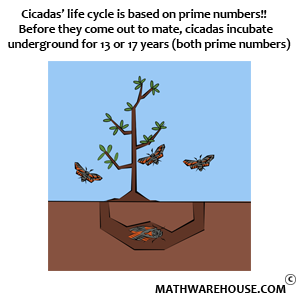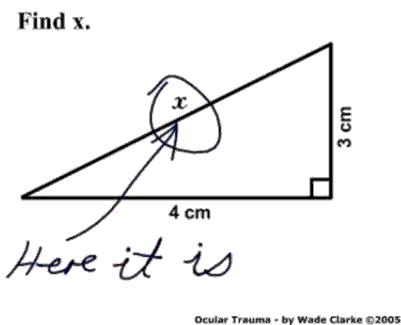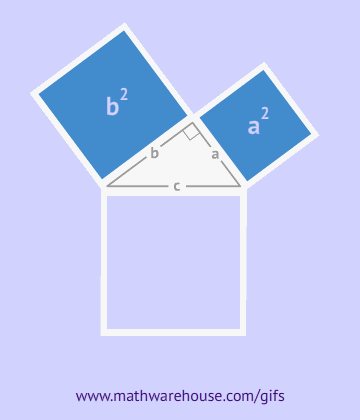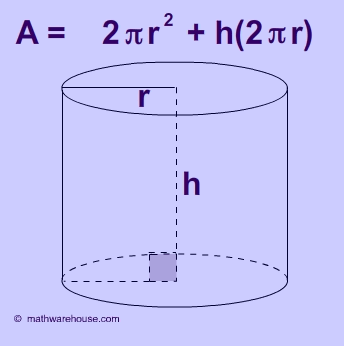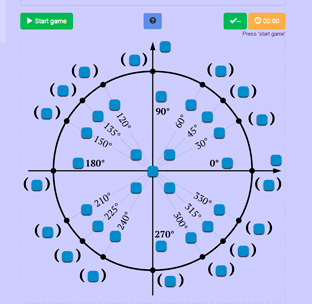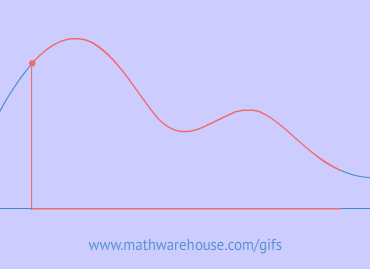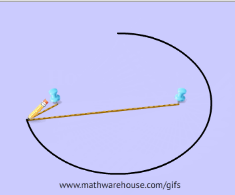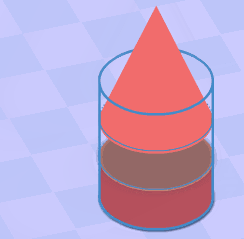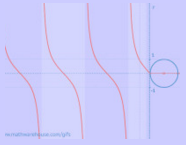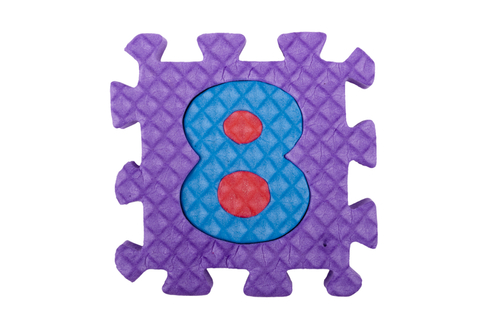Differentiate using the chain rule.
\begin{align*} f'(x) & = \cos\left(x^{4/3}\right)\cdot \frac d {dx}\left(x^{4/3}\right)\\[6pt] & = \cos\left(x^{4/3}\right)\cdot \frac 4 3 x^{1/3} \end{align*}
Simplify.
$$f'(x) = \frac 4 3 x^{1/3}\cos\left(x^{4/3}\right)$$
$$\displaystyle f'(x) = \frac 4 3 x^{1/3}\cos\left(x^{4/3}\right)$$
Differentiate using the chain rule.
$$ \begin{align*} f'(x) & = -\sin\left(3-6x^7\right)\cdot \frac d {dx}\left(3-6x^7\right)\\[6pt] & = -\sin\left(3-6x^7\right)\cdot (-42x^6)\\[6pt] & = 42x^6\sin\left(3-6x^7\right) \end{align*} $$
$$\displaystyle f'(x) = 42x^6\sin\left(3-6x^7\right)$$
Rewrite the function so the square-root is expressed in exponent form.
$$ f(x) = \tan\left(x^{1/2}\right) $$
Differentiate using the chain rule.
$$ \begin{align*} f'(x) & = \sec^2\left(x^{1/2}\right)\cdot \frac d {dx}\left(x^{1/2}\right)\\[6pt] & = \sec^2\left(x^{1/2}\right)\cdot \frac 1 2 x^{-1/2} \end{align*} $$
Simplify.
$$ \begin{align*} f'(x) & = \sec^2\left(x^{1/2}\right)\cdot \frac 1 2 x^{-1/2}\\[6pt] & = \sec^2\left(x^{1/2}\right)\cdot \frac 1 2 \cdot\frac 1 {x^{1/2}}\\[6pt] & = \sec^2\left(\sqrt x\right)\cdot \frac 1 {2\sqrt x}\\[6pt] & = \frac{\sec^2\left(\sqrt x\right)}{2\sqrt x} \end{align*} $$
(Optional) Rationalize the denominator.
$$ f'(x) = \frac{\sqrt x\,\sec^2\left(\sqrt x\right)}{2x} $$
$$ \displaystyle f'(x) = \frac{\sqrt x\,\sec^2\left(\sqrt x\right)}{2x} $$
Differentiate using the chain rule.
$$ \begin{align*} \frac d {dx}\left(\cot 7x^5\right) & = -\csc^2 7x^5 \cdot \frac d {dx}\left(7x^5\right)\\[6pt] & = -\csc^2 7x^5 \cdot 35x^4\\[6pt] & = -35x^4\csc^2 7x^5 \end{align*} $$
$$\displaystyle \frac d {dx}\left(\cot 7x^5\right) = -35x^4\csc^2 7x^5$$
Rewrite the function so the $$\frac 1 x$$ is in exponent form.
$$ \frac d {dx}\left[\sec\left(\frac 1 x\right)\right] = \frac d {dx}\left[\sec\left(x^{-1}\right)\right] $$
Differentiate using the chain rule.
$$ \begin{align*} \frac d {dx}\left[\sec\left(x^{-1}\right)\right] & = \sec\left(x^{-1}\right)\tan\left(x^{-1}\right)\cdot \frac d {dx}\left(x^{-1}\right)\\[6pt] & = \sec\left(x^{-1}\right)\tan\left(x^{-1}\right)\cdot \left(-x^{-2}\right) \end{align*} $$
Simplify.
$$ \begin{align*} \frac d {dx}\left[\sec\left(x^{-1}\right)\right] & = \sec\left(x^{-1}\right)\tan\left(x^{-1}\right)\cdot \left(-x^{-2}\right)\\[6pt] & = -x^{-2}\sec\left(x^{-1}\right)\tan\left(x^{-1}\right)\\[6pt] & = -\frac 1 {x^2}\sec\left(\frac 1 x\right)\tan\left(\frac 1 x\right) \end{align*} $$
$$\displaystyle \frac d {dx}\left[\sec\left(\frac 1 x\right)\right] = -\frac 1 {x^2}\sec\left(\frac 1 x\right)\tan\left(\frac 1 x\right)$$
Differentiate using the chain rule.
$$ \begin{align*} f'(x) & = -\csc\left(\frac \pi 2 x^2\right)\cot\left(\frac \pi 2 x^2\right)\cdot \frac d {dx}\left(\frac \pi 2 x^2\right)\\[6pt] & = -\csc\left(\frac \pi 2 x^2\right)\cot\left(\frac \pi 2 x^2\right)\cdot \left(\frac \pi 2 \cdot 2x\right)\\[6pt] & = -\csc\left(\frac \pi 2 x^2\right)\cot\left(\frac \pi 2 x^2\right)\cdot \left(\pi x\right)\\[6pt] & = -\pi x\csc\left(\frac \pi 2 x^2\right)\cot\left(\frac \pi 2 x^2\right) \end{align*} $$
Evaluate $$f'(\sqrt 3)$$.
$$ \begin{align*} f'(\sqrt 3) & = -\pi \sqrt 3\,\csc\left(\frac \pi 2 (\sqrt 3)^2\right)\cot\left(\frac \pi 2 (\sqrt 3)^2\right)\\[6pt] & = -\pi \sqrt 3\,\csc\left(\frac{3\pi} 2\right)\cot\left(\frac{3\pi} 2\right)\\[6pt] & = -\pi \sqrt 3\,(-1)(0)\\[6pt] & = 0 \end{align*} $$
$$ \displaystyle f'\left(\sqrt 3\right) = 0 $$
Identify the factors in the function.
$$ f(x) = \blue{\csc 2x }\,\red{\cot 2x } $$
Differentiate using the product rule. Simplify.
$$ \begin{align*} f'(x) & = \blue{-2\csc 2x \cot 2x }\cot 2x + \csc 2x \red{(-2\csc^2 2x )}\\[6pt] & = -2\csc 2x \cot 2x \cot 2x -2\csc 2x \csc^2 2x \\[6pt] & = -2\csc 2x \cot^2 2x -2\csc^3 2x \end{align*} $$
Simplify with factoring and trig identitites.
$$ \begin{align*} f'(x) & = \blue{-2}\csc 2x \cot^2 2x \blue{-2}\csc^3 2x\\[6pt] & = \blue{-2}\left(\red{\csc 2x}\cot^2 2x + \red{\csc^3 2x}\right)\\[6pt] & = -2\red{\csc 2x}\left(\cot^2 2x + \csc^2 2x\right)\\[6pt] & = -2\csc 2x\left(\csc^2 2x - 1 + \csc^2 2x\right)\\[6pt] & = -2\csc 2x\left(2\csc^2 2x - 1\right) \end{align*} $$
$$f'(x) = -2\csc 2x\left(2\csc^2 2x - 1\right)$$
Identify the factors in the function.
$$ f(x) = \blue{\sec \pi x }\,\red{\tan \pi x} $$
Differentiate using the product rule. Simplify.
$$ \begin{align*} f'(x) & = \blue{\pi\sec \pi x\tan \pi x}\tan \pi x + \sec \pi x\cdot \red{\pi \sec^2 \pi x}\\[6pt] & = \pi\sec \pi x\tan^2 \pi x + \pi\sec^3 \pi x \end{align*} $$
Evaluate $$f'\left(\frac 1 4\right)$$
$$ \begin{align*} f'\left(\frac 1 4\right) & = \pi\sec\left(\pi\cdot \frac 1 4\right)\tan^2\left(\pi\cdot \frac 1 4\right) + \pi\sec^3\left(\pi\cdot \frac 1 4\right)\\[6pt] & = \pi\sec \frac \pi 4\cdot\tan^2 \frac \pi 4 + \pi\sec^3 \frac \pi 4\\[6pt] & = \pi(\sqrt 2)(1)^2 + \pi(\sqrt 2)^3\\[6pt] & = \pi\sqrt 2 + 2\pi\sqrt 2\\[6pt] & = 3\pi\sqrt 2 \end{align*} $$
$$\displaystyle f'\left(\frac 1 4\right) = 3\pi\sqrt 2$$
Differentiate using the quotient rule. The parts in $$\blue{blue}$$ are related to the numerator.
$$ \begin{align*} \frac d {dx}\left(\frac{\sin x} x\right) & = \frac{x\blue{\cos x} - \blue{\sin x}\cdot 1}{x^2}\\[6pt] & = \frac{x\cos x - \sin x}{x^2} \end{align*} $$
$$ \displaystyle \frac d {dx}\left(\frac{\sin x} x\right) = \frac{x\cos x - \sin x}{x^2} $$
Differentiate using the quotient rule. The parts in $$\blue{blue}$$ are related to the numerator.
$$ \begin{align*} f'(x) & = \frac{x\,\blue{\sin x} - \blue{(1-\cos x)}\cdot 1}{x^2}\\[6pt] & = \frac{x\sin x - 1+\cos x}{x^2}\\[6pt] & = \frac{x\sin x+\cos x - 1}{x^2} \end{align*} $$
$$ \displaystyle f'(x) = \frac{x\sin x+\cos x - 1}{x^2} $$
Write the function so that it is easier to see the secant being cubed.
$$ \frac d {dx}\left(\sec^3 x\right) = \frac d {dx}\left[(\sec x)^3\right] $$
Differentiate using the chain rule.
$$ \begin{align*} \frac d {dx}\left[(\sec x)^3\right] & = 3(\sec x)^2\cdot \frac d {dx}\left(\sec x\right)\\[6pt] & = 3(\sec x)^2\cdot \sec x\tan x\\[6pt] & = 3\sec^3 x\tan x \end{align*} $$
$$\displaystyle \frac d {dx}\left(\sec^3 x\right) = 3\sec^3 x\tan x$$
Rewrite the function so the powers are more explicit.
$$ f(x) = (\tan 7x)^3(\sec 7x)^2 $$
Identify the factors in the function.
$$ f(x) = \blue{(\tan 7x)^3}\red{(\sec 7x)^2} $$
Differentiate using the product rule. Note that each factor requires the chain rule to differentiate.
$$ \begin{align*} f'(x) & = \blue{3(\tan 7x)^2\cdot \frac d {dx}\left(\tan 7x\right)}(\sec 7x)^2 + (\tan 7x)^3\red{\cdot 2(\sec 7x)^1\cdot \frac d {dx}\left(\sec 7x\right)}\\[6pt] & = \blue{3(\tan 7x)^2\left(7\sec^2 7x\right)}(\sec 7x)^2 + (\tan 7x)^3\red{\cdot 2(\sec 7x)\left(7\sec 7x\tan 7x\right)}\\[6pt] & = 21\tan^2 7x\sec^4 7x + 14\tan^4 7x\sec^2 7x \end{align*} $$
Simplify by factoring.
$$ \begin{align*} f'(x) & = 21\blue{\tan^2 7x}\sec^4 7x + 14\blue{\tan^4 7x}\sec^2 7x\\[6pt] & = \blue{\tan^2 7x}\left(21\red{\sec^4 7x} + 14\tan^2 7x\red{\sec^2 7x}\right)\\[6pt] & = \tan^2 7x\,\red{\sec^2 7x}\left(21\sec^2 7x + 14\tan^2 7x\right)\\[6pt] & = 7\tan^2 7x\sec^2 7x\left(3\sec^2 7x + 2\tan^2 7x\right) \end{align*} $$
Evaluate $$f'\left(\frac\pi 6\right)$$.
$$ \begin{align*} f'\left(\frac\pi 6\right) & = 7\tan^2\left(7\cdot \frac\pi 6\right)\sec^2\left(7\cdot \frac\pi 6\right)\left[3\sec^2\left(7\cdot \frac\pi 6\right) + 2\tan^2 \left(7\cdot \frac\pi 6\right)\right]\\[6pt] & = 7\tan^2\left(\frac{7\pi} 6\right)\sec^2\left(\frac{7\pi} 6\right)\left[3\sec^2\left(\frac{7\pi} 6\right) + 2\tan^2 \left(\frac{7\pi} 6\right)\right]\\[6pt] & = 7\left(\frac{\sqrt 3} 3\right)^2\left(\frac{2\sqrt 3} 3\right)^2\left[3\left(\frac{2\sqrt 3} 3\right)^2 + 2\left(\frac{\sqrt 3} 3\right)^2\right]\\[6pt] & = 7\left(\frac 1 3\right)\left(\frac 4 3\right)\left[3\left(\frac 4 3\right) + 2\left(\frac 1 3\right)\right]\\[6pt] & = \frac{392}{27} \end{align*} $$
$$ \displaystyle f'\left(\frac\pi 6\right) = \frac{392}{27} $$
Rewrite the function so the square-root is in exponent notation.
$$ \frac d {dx}\left(\sqrt{1 - \sin 3x}\right) = \frac d {dx}\left((1 - \sin 3x)^{1/2}\right) $$
Differentiate using the chain rule. Simplify your result.
$$ \begin{align*} \frac d {dx}\left((1 - \sin 3x)^{1/2}\right) & = \frac 1 2(1-\sin 3x)^{-1/2}\cdot \frac d {dx}\left(1 - \sin 3x\right)\\[6pt] & = \frac 1 2(1-\sin 3x)^{-1/2}\cdot (-3\cos 3x)\\[6pt] & = -\frac 3 2(1-\sin 3x)^{-1/2}\cos 3x\\[6pt] & = -\frac 3 2\cdot \frac 1 {\sqrt{1-\sin 3x}}\cdot \cos 3x\\[6pt] & = -\frac{3\cos 3x}{2\sqrt{1-\sin 3x}} \end{align*} $$
$$ \displaystyle \frac d {dx}\left(\sqrt{1 - \sin 3x}\right)= -\frac{3\cos 3x}{2\sqrt{1-\sin 3x}} $$
Differentiate using the chain rule.
$$ \begin{align*} f'(x) & = e^{\tan x}\cdot \frac d {dx}\left(\tan x\right)\\[6pt] & = e^{\tan x}\cdot \sec^2 x \end{align*} $$
Evaluate $$f'\left(\frac\pi 4\right)$$.
$$ \begin{align*} f'\left(\frac\pi 4\right) & = e^{\tan \frac \pi 4}\cdot \sec^2 \frac \pi 4\\[6pt] & = e^1\cdot (\sqrt 2)^2\\[6pt] & = 2e^1 \end{align*} $$
$$f'\left(\frac\pi 4\right) = 2e$$

